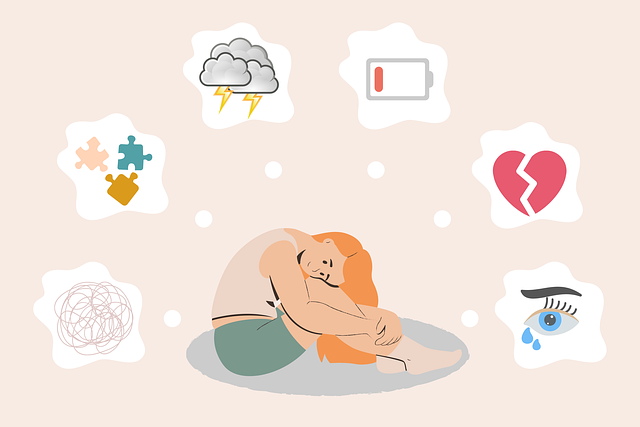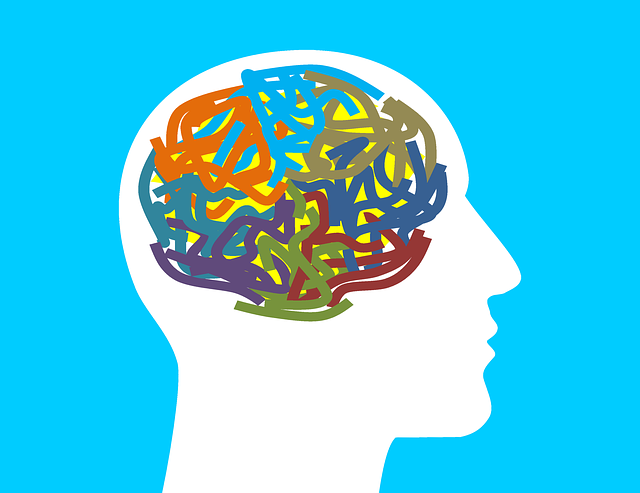Group mental health sessions offer a powerful alternative to traditional therapy by bringing individuals with shared experiences together in a supportive setting. These sessions, including group therapy and support groups, provide peer support, enhance communication skills, and foster empathy through open dialogue. Engaging activities like icebreakers and skill-building exercises, combined with ethical practices prioritizing confidentiality and professional boundaries, create a safe space for participants to build self-confidence and learn coping strategies. Facilitators skillfully navigate individual needs within the group dynamic, revolutionizing mental health counseling by fostering profound connections and tailored therapeutic benefits.
Group mental health sessions offer a powerful and effective approach to therapy, fostering connection and support among individuals sharing similar challenges. This comprehensive guide explores the multifaceted world of group counseling, from its benefits and fundamental concepts to practical facilitation techniques and ethical guidelines. We delve into creating engaging activities, addressing challenges, ensuring safety, and tailoring individual needs within a group setting, providing valuable insights for both practitioners and seekers of mental health counseling.
Understanding Group Mental Health Sessions: Benefits and Concept

Group mental health sessions offer a unique and beneficial approach to mental health counseling. Unlike traditional one-on-one therapy, these sessions bring together individuals with shared experiences or challenges in a safe and supportive environment. The concept behind group therapy is simple yet powerful: by connecting with others, individuals can gain insights, build resilience, and foster a sense of community.
One of the key benefits of mental health counseling in a group setting is the opportunity for peer support. Members can offer and receive encouragement, share coping strategies, and learn from one another’s experiences. This collective understanding and empathy can significantly enhance the therapeutic process. Additionally, group sessions encourage active participation, allowing individuals to practice communication skills, build self-confidence, and develop new perspectives on their mental health journey.
Types of Group Counseling Settings and Facilitation Styles

Group mental health sessions, also known as group counseling or psychotherapy, offer a unique and beneficial approach to addressing psychological well-being. These settings can vary widely, each with distinct characteristics and facilitation styles that cater to different needs. One common type is group therapy, where individuals with shared challenges come together to support one another. This format encourages open dialogue, fostering a sense of community and understanding among peers. Facilitators act as guides, helping members navigate conversations, share experiences, and acquire new coping strategies.
Another setting is support groups, which are often more focused on specific issues or conditions. These groups provide a safe space for individuals to connect, share stories, and offer mutual support. Facilitation styles may involve structured discussions, sharing techniques, or simply listening and encouraging members to express their feelings. The interactive nature of these sessions enhances the sense of belonging and empowers participants to manage their mental health effectively.
Designing Effective Group Therapy Activities and Exercises

Designing engaging and effective group therapy activities is crucial for enhancing mental health counseling sessions. These exercises should foster a safe, inclusive, and supportive environment where participants can openly share their experiences and connect with others. Incorporate a mix of icebreakers, skill-building activities, and group discussions to cater to diverse learning styles and encourage active participation. For instance, start with simple introductions and progress towards more complex topics like emotional expression through art or role-playing scenarios that mimic real-life challenges.
Effective group therapy activities should promote active listening, empathy, and problem-solving skills. Facilitators can use exercises like guided meditations or mindfulness practices to calm the mind and improve focus. Additionally, incorporating feedback mechanisms ensures sessions remain relevant and beneficial. Encourage participants to provide anonymous suggestions for topics they’d like to explore, fostering a sense of ownership and engagement in their mental health journey.
Ethical Considerations and Confidentiality in Group Mental Health

In group mental health sessions, ethical considerations and confidentiality are paramount. Participants must be fully informed about the nature of the group, the purpose of sharing, and their rights to privacy. It’s crucial for facilitators to ensure everyone understands that discussions within the group remain strictly confidential, protecting individuals from potential stigma or discrimination. This creates a safe space where individuals can openly share their experiences without fear of judgment or repercussions.
Facilitators have an ethical obligation to maintain professional boundaries and protect participant autonomy. They must be vigilant in ensuring no one is pressured into sharing more than they’re comfortable with, respecting individual pace and limits. Confidentiality extends beyond the group itself, with facilitators adhering to strict protocols for storing and handling participant information, safeguarding privacy in all interactions related to mental health counseling.
Overcoming Challenges and Creating a Safe Space for Participants

In group mental health sessions, creating a safe and supportive environment is paramount for participants’ well-being and progress. Overcoming challenges in this setting requires a nuanced approach. Facilitators must ensure confidentiality to foster trust, allowing individuals to share openly without fear of judgment or repercussions. This creates a sense of security, encouraging participants to explore their emotions and thoughts more deeply.
Additionally, establishing clear boundaries and ground rules is essential. Setting expectations for respect, active listening, and non-judgmental attitudes helps maintain a safe space. By creating an environment where everyone feels valued and heard, group therapy sessions can enhance mental health counseling, promoting open communication and profound connections among participants.
Integrating Individual Needs Within the Group Dynamic

In group mental health sessions, balancing individual needs and the collective dynamic is an art. Each participant enters with unique challenges and goals, requiring a tailored approach within the group setting. Ment health counselors play a pivotal role in facilitating this integration. They must skillfully navigate the interplay of personal stories and shared experiences, ensuring that every voice is heard without overwhelming the group’s progress.
The challenge lies in fostering an environment where individuals feel safe to express their struggles openly while also respecting the boundaries of others. Counselors achieve this by encouraging active participation, promoting empathy among members, and tailoring activities to cater to diverse needs. By doing so, they enhance the therapeutic benefits of group counseling, allowing each person to contribute to a collective healing space that respects individual differences.
